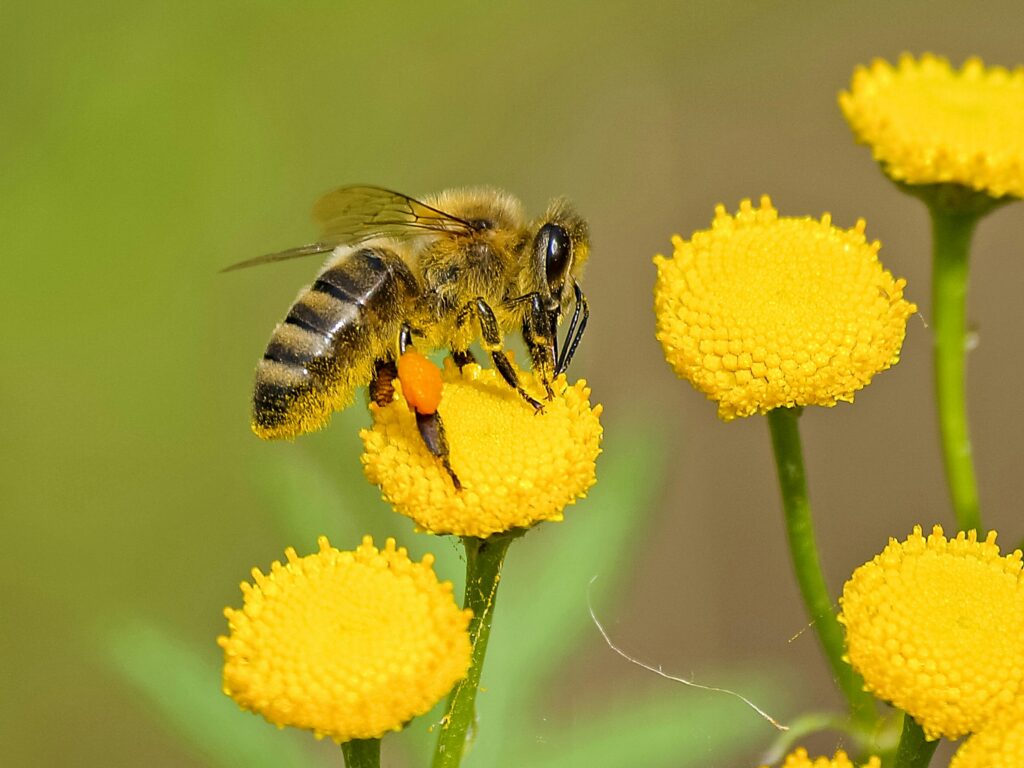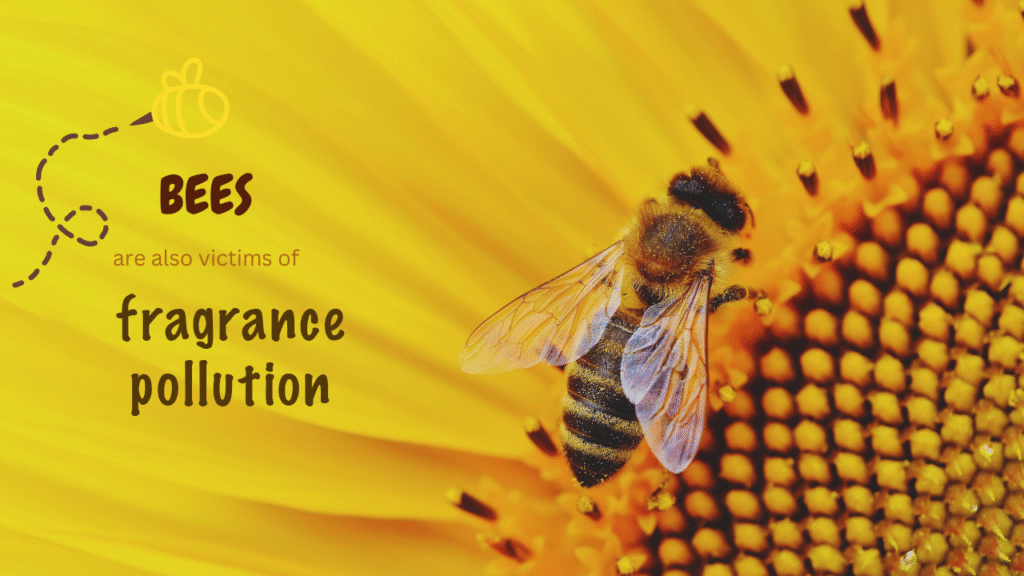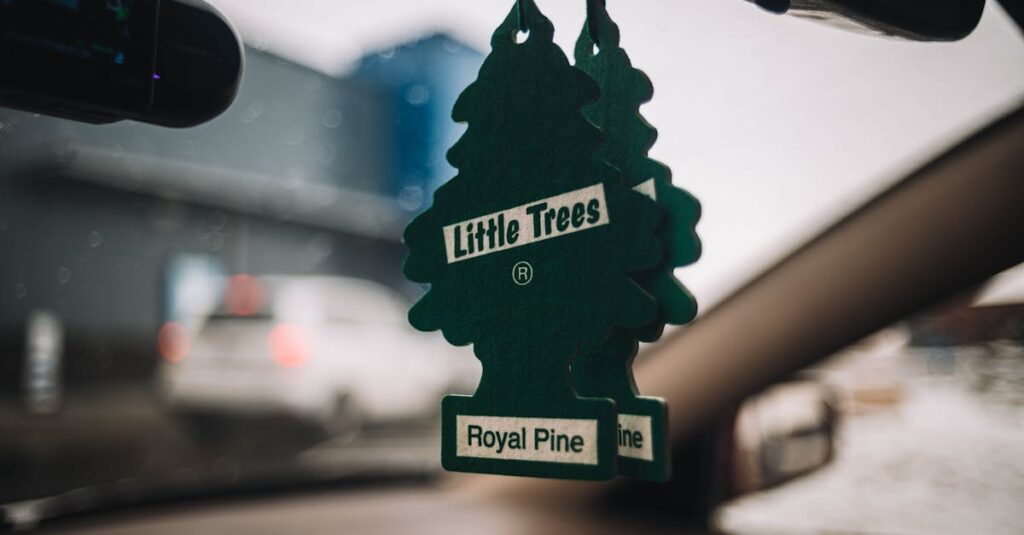We often associate fragrances with cleanliness and comfort—be it the fresh scent of laundry detergent, the calming aroma of scented candles, or the invigorating spritz of perfume. However, these synthetic fragrances release volatile organic compounds (VOCs) into the air, contributing to air pollution. While the health implications for humans are concerning, an often-overlooked victim of this pollution is the bee population.
🌸 Bees: Nature’s Pollinators in Peril
Bees are incredible creatures. They don’t just fly around collecting nectar—they help pollinate 70% of the world’s crops. Their ability to do this depends heavily on one thing: their sense of smell.
Bees use scent to:
- Identify flowers with nectar
- Communicate with other bees
- Navigate back to their hives
Their antennae are loaded with powerful scent receptors that allow them to detect and follow the natural fragrance trails that flowers produce.
💨 What Happens When Synthetic Fragrance Enters the Air
The problem is, synthetic fragrances release volatile organic compounds (VOCs)—airborne chemicals that can mask or override the natural scents bees depend on. These chemicals don’t just smell strong to us; they interfere with bees’ ability to find food, throwing off their behavior and survival instincts.
Key effects on bees include:
- Disorientation and trouble navigating
- Difficulty locating flowers
- Disruption in communication and pollination (Reddit)
- Decreased immune function and increased stress (Carvansons+1Humble Brands+1)
Research has shown that air pollutants like ozone can degrade floral scents, making it harder for bees to locate flowers. A study published in Atmospheric Environment found that even moderate levels of ozone can significantly alter the chemical composition of floral scents, leading to decreased pollination efficiency.
🌍 What This Means for Our Planet
Bees are already under attack from pesticides, habitat destruction, and climate change. Scent pollution from fragranced products might seem small in comparison—but when bees can’t find flowers or communicate properly, entire ecosystems start to suffer.
Less pollination means:
- Fewer fruits and vegetables
- Disruption to food chains
- Decline in biodiversity
Our planet literally depends on bees to grow food and sustain wildlife. When we fill the air with artificial chemicals, we aren’t just affecting ourselves—we’re weakening the systems that support life.
📚 What Studies Show
Overuse of scented products and synthetic fragrances is indeed linked to the challenges bees face in locating flowers. While many studies focus on broader sources of air pollution, such as vehicle emissions and industrial activities, synthetic fragrances contribute to this issue by releasing volatile organic compounds (VOCs) into the atmosphere.Science News Explores
These VOCs can degrade or mask the natural floral scents that bees rely on for foraging. For instance, research has shown that air pollutants like ozone and nitrogen oxides can significantly alter the chemical composition of floral odors, making it more difficult for pollinators to detect and locate flowers. In one study, exposure to common air pollutants reduced honeybees’ ability to recognize floral scents by up to 90%, leading to decreased pollination efficiency. Technology Networks+1Phys.org+1
While synthetic fragrances are not the sole contributors to air pollution, their widespread use in personal care products, cleaning agents, and air fresheners adds to the cumulative VOC levels in the environment. This, in turn, exacerbates the challenges pollinators face, highlighting the importance of considering fragrance use in discussions about pollinator health and conservation.
For a more comprehensive understanding of how air pollution affects pollinators, you might find the following articles informative:
Air Pollution Makes Flowers Smell Less Appealing to Pollinators, Study Suggests
An exploration of how air pollution makes flowers less appealing to pollinators by breaking down important wild fragrances.
Air pollution makes it harder for bees to smell flowers
This article discusses how contaminants can alter plant odors and warp insects’ senses, disrupting the process of pollination. Knowable Magazine | Annual Reviews+1Popular Science+1
Air pollution prevents pollinators from finding flowers, study shows
A study highlighting how air pollution dramatically reduces pollination by degrading the scent of flowers, affecting bees’ ability to find them. Phys.org
🌿 How You Can Help
Going fragrance-free isn’t just good for your health—it’s a step toward protecting the environment and its most important pollinators.
Here’s how you can start:
- Ditch air fresheners, scented candles, and dryer sheets
- Choose fragrance-free personal care and cleaning products
- Support local and organic farms that avoid synthetic sprays
- Plant native flowers without pesticide use
- Share this message and raise awarenessBe Layered+15Statista+15Knowable Magazine | Annual Reviews+15
🐝 It’s Bigger Than Smell
Fragrance-free living is often misunderstood as a lifestyle choice. But for people with Multiple Chemical Sensitivity (MCS) and for vulnerable ecosystems like those bees inhabit, it’s a necessity.
Let’s stop scent pollution at the source.
Protect your health. Protect the bees. Protect our future.
Related Posts You Might Like:
- 👉 The Hidden Dangers of Synthetic Fragrances
Fragrances aren’t just annoying—they can trigger full-body shutdowns for people with MCS. Here’s what it’s like to live in a scent-filled world. - 👉 How to Keep Your Car Smelling Fresh Without Toxic Chemicals
Simple swaps to go fragrance-free and protect both your health and the planet—plus tips for reducing exposure indoors.





This is so sad that bees have to suffer because humans love their perfumes so much. Thank you for spreading awareness!